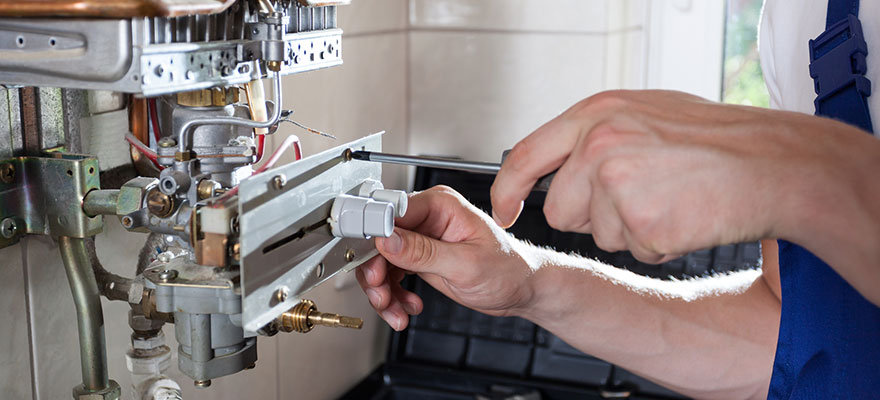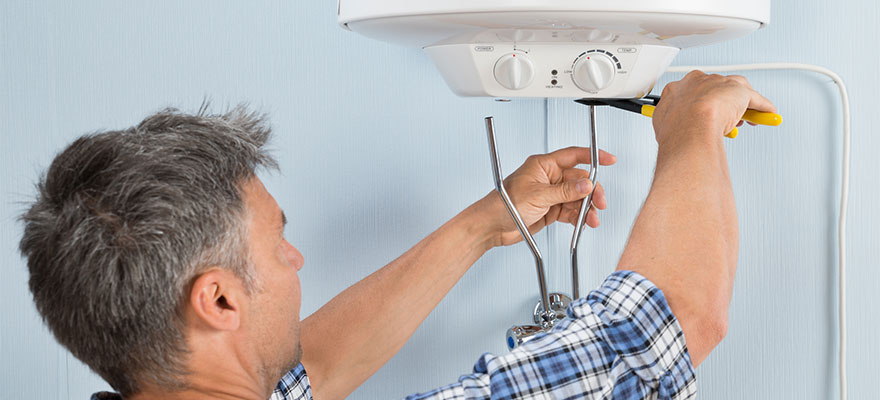Hot water, steaming showers and toasty radiators are one of life’s essentials and with a combi boiler you can seamlessly switch from one to another. And this is thanks to a part called the diverter valve, which diverts hot water to exactly where you need it. But if your diverter valve starts to fail, you can be left with intermittent heating, lukewarm water or in the worst case, no heating at all.
Knowing what to do if you suspect a faulty diverter valve is key to getting your heating back on track and reducing the amount of energy you can waste. We take a look at this hardworking piece of domestic engineering and ask – what is a diverter valve?
What is a Diverter Valve?
A diverter valve is an essential part of your heating system as it opens and closes to let hot water travel into your radiators, taps and showers. It only works in a combi-boiler – a system where your water heater and central heating boiler is in one – when water is heated ‘on demand’.
Turn on your hot tap and it is the diverter valve that will direct the hot water to where it needs to go, so you get instant, hot water. Switch your central heating on, and the hot water is sent to your radiators. The diverter valve will also prioritize your hot water over any radiators and will close off the heating supply until the hot tap is switched off. Hot water will then be diverted back to your radiator once you turn off the hot tap or shower.
A diverter valve is not required in system and conventional boilers as the hot water they produce is stored in a hot water tank for when it is needed.

How Diverter Valves Work
Simply put, a diverter valve works by redirecting the water in the combi boiler to respond to your hot water requirements, whether you have just turned on the shower or switched on a radiator.
As a mechanical component, diverter valves can differ slightly in design, but it ultimately acts like a gatekeeper for water, sending the water in your heating system to where you require it at that moment. So, when you switch on a hot tap, the diverter valve will close off the central heating supply and send the water to the plate heat exchanger, which warms the water for that lovely hot tap water or deliciously warm shower.
Turn off your shower or hot tap and the combi boiler diverter valve then closes off the supply and redirects it back to the boiler’s primary heat exchanger, to feed hot water into your radiators or underfloor heating system.
You can also check out our latest article on: Best Shower Sealants
How to Spot a Diverter Valve Fault
To efficiently divert the water to where your hot water system needs it to go, the diverter valve has several moving parts which control the water flow and direction. As with any mechanical moving parts, however, they can get stuck in the wrong position or deteriorate leading to a faulty diverter valve. And, as they get plenty of use, especially during those cold winter months, it is likely diverter valves will degrade over time.
You can suspect a faulty diverter valve if you experience any of the following with your hot water system:
No hot water
A clear sign there is something wrong with your diverter valve is if the water from your taps simply doesn’t heat up, no matter how long you let the water run for. To test if you have a faulty diverter valve, turn the heating on and see if the tap water also warms up. If so, then the valve is having an issue with diverting the water flow. There are several reasons why the diverter valve is getting stuck when it comes to turning on hot water in your taps, including a build-up of limescale which is a common occurrence in your hot water supply.
You have hot water but no heating
Another indication that your diverter valve has a fault or is stuck open is when you get hot water coming out of your taps but there is no heat coming from your radiators. The likely cause of this faulty diverter valve scenario is the that the diverter valve is stuck on the hot water side. As the system is designed to prioritize your hot water, if the valve is stuck on the side that diverts water to your taps and showers, then the valve cannot open to divert water to your radiators and heating system.
Your water is luke warm
Despite opening up the hot water taps and showers fully, if you are only getting lukewarm water coming out, then there could well be an issue with the diverter valve getting slightly stuck open. As the boiler should always priorities hot water on demand, then if it is coming out of the tap luke warm instead of piping hot, then the valve could be partially stuck open on the heating side. If so, this can cause some of the heating power intended for the hot taps to escape, reducing the heating power for the water.
A partially stuck diverter valve is one of the most common causes of a fault in your hot water system and if left, will not only leave you with lukewarm water, but can also result in higher energy bills due to all that heat being lost over a prolonged period of time.
How to Fix a Diverter Valve
If you are experiencing issues with your hot water or central heating and suspect your diverter valve is faulty, then working through the above potential causes can give you a clearer idea as to what is going wrong.
However, we strongly recommend calling out a gas safe registered engineer instead of attempting to fix the fault on your own. Professional advice is essential to keep your diverter unit, combi boiler and hot water system working safely and effectively.
An engineer will be able to fully assess your heating system and accurately identify whether a faulty diverter valve is to blame. If so, he can then either clean the valve or replace the diverter valve unit with a new diverter if needed. The engineer will also check the control systems and can give your combi boiler heating system a good look over, to ensure there are no boiler issues and it is all working and in good condition.
However, if your boiler was installed more than 10 years ago, you may want to consider a new boiler, which will iron out the diverter valve problems as well as run much more efficiently and help to keep those energy bills down. Your gas safe engineer can advise you on the best products and arrange the new replacement boiler installation.

How Much Does a Diverter Valve Cost?
There is no ‘one size fits all’ diverter valve for combi boilers so you need to ensure you have the right sized diverter unit for your particular system. Your engineer will advise you as to the right products for your particular boiler system but to have the faulty diverter valve replaced, you can currently expect to pay between £25-£350, which includes parts and labour.
And, if you don’t have one already, now is a good time to explore the option of a mid-position diverter valve fitted, which enables to you use your hot water, while keeping your radiators warming up. And for consistently hot water and a warm home, this is an excellent investment to consider!
You may also like our guide on the Best Thermostatic Radiator Valves
Sources:
- How to fix a diverter valve – Viessmann
- Fix a Leaking Shower Diverter Valve: Mistakes to Avoid – Do It Yourself